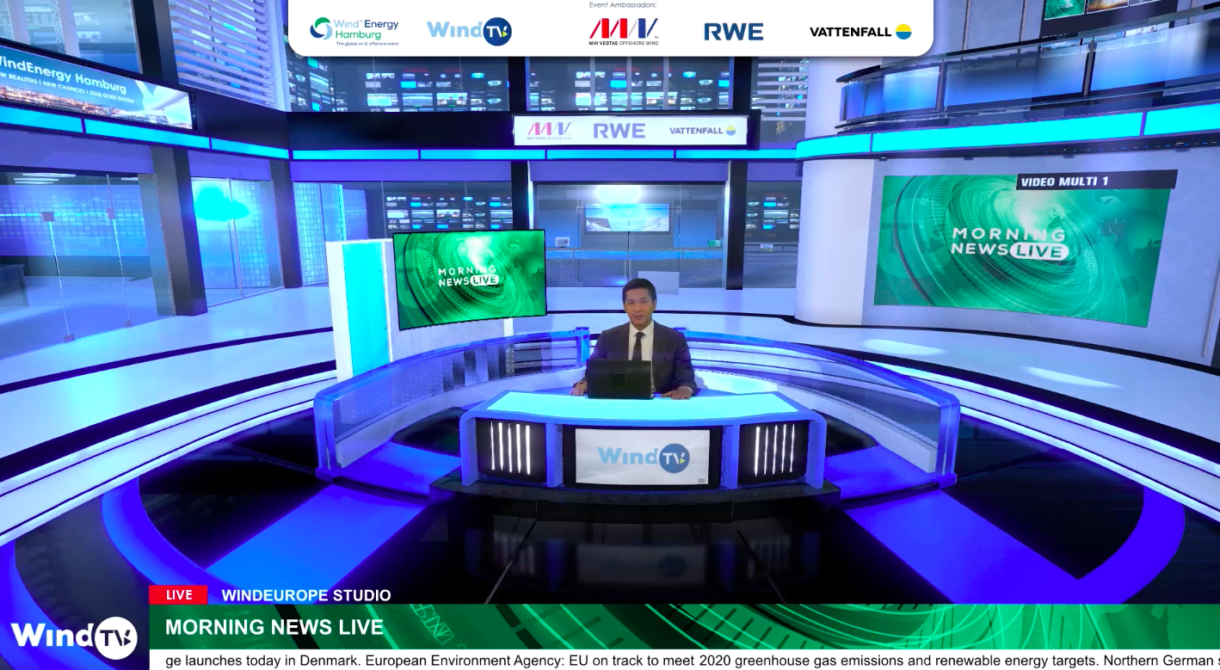With over 400 members active in over 35 countries, WindEurope has become the wind industry’s mouthpiece for the advancement of wind power in Europe and worldwide. At times like during a pandemic, when a breath of fresh air is all this planet needs, harvesting the power of the wind has become extremely relevant to getting us out of the crisis. And that is where important associations like these come in; to provide the necessary links between experts and businesses and promote renewable resources through international sustainable agreements like the European Commission’s Green Deal (read all about how associations play an important role in this in Boardroom’s upcoming Green Deal Series).
In an effort to convey the progressive message and provide the necessary education for their members, WindEurope decided to organize their annual conference in a similarly progressive way. From 1 to 4 December, what was initially supposed to be a normal exhibition and conference, got transferred to a full TV show. “Our first impression was, if we organize another meeting in a form of a Zoom conference people would pay us not to be part of this event,” says Malgosia Bartosik, Deputy CEO of WindEurope. “We had to be creative and work from different parts of the world in order to organize something exciting and different. Teamwork was key and the added bonus was the team spirit that was created despite the fact that people were working from home.”
Conference Content Presented Differently
The result was surprisingly successful. Four full days of conference sessions, interviews, industry leaders talks and exhibitor talks were integrated in an actual interactive TV program featuring commercials, news broadcasts, quizzes, weather forecasts and even entertainment and games. Bartosik explained about the creation of the content: “We came up with this idea of a TV show because we thought that this could be really something that can work nicely in a decentralized way. Different people were responsible for creating different content. On TV the need to be consistent disappears since you have all these different blocks. You can switch between funny and serious during the day and create all kinds of interesting segments.”
The advantage of working on such a project was evident from the beginning. As people were working from different places to organize the event, the variety of blocks gave everyone the opportunity to choose what they enjoyed the most. “The whole idea played to people’s strengths, it allowed them the flexibility of new creative ideas that were put on video with the help of cameramen,” she says.

One challenging part was the actual outcome as everything was pieced together just a few days before going on air. Again, the idea of a TV show came in handy as it plays on what delegates are already familiar with, the flexibility of switching on or off the various programs according to time and interest. The fact that the whole project remained online for quite some time after the actual conference dates, along with the fact that it was free of charge for all, really made for a smooth result in the end.
Some financial issues were overcome with what works best for such cases on TV, i.e. commercials and sponsors. Interested companies really got a chance to exhibit their product while at the same time the show made some necessary profit. “The commercials really helped us to be flexible in time when needed, fill in for shorter speeches or even for technical issues that may come up,” explains Bartosik. “The whole project required team spirit and imagination. For technical support we even turned our offices into a studio in order to use all resources available,” she continues.
WindEurope’s idea can serve many associations, in fact, with lower or higher budgets. Team members used as moderators and presenters, design and graphics created in-house, use of free TV templates, selecting the number of days of conference can be adjusted to any association’s resources and needs.
All in all, the idea was reigned successful, with the 44,000 visitors who attended giving positive feedback and requesting for a similar event in the future. Bartosik concludes: “With so much free content out there, we have to reinvent ourselves in order to stay relevant in this new online world. I strongly believe you can make online events successful in terms of revenue and I think we have proven that with the with this event. Copy-paste a live conference online just doesn’t work, but with some creativity we can definitely produce great results. It is really about mindset and not skill set.”
